Trump's surprising new style and other New York lessons
- Published
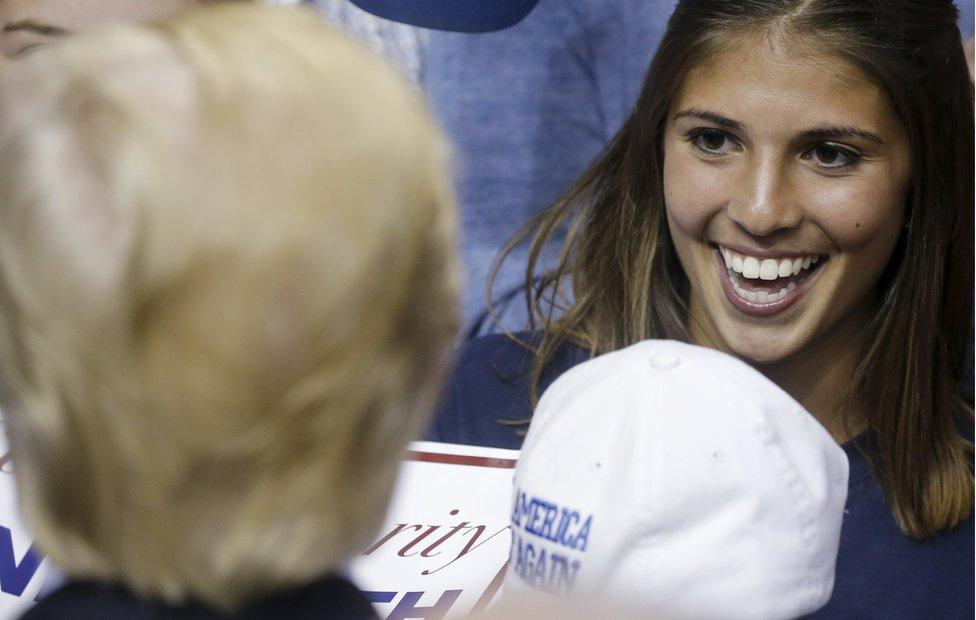
Both Hillary Clinton and Donald Trump claim New York as their home state, and on Tuesday New York voters treated them like family.
Other states may have kicked them around - oh, that mean Wisconsin! - but when the two front-runners came back to their native land, they were enveloped in the welcoming arms of those who know and love them best.
Here are four key take-aways from a big night in the Big Apple.
A new-look Trump has a chance
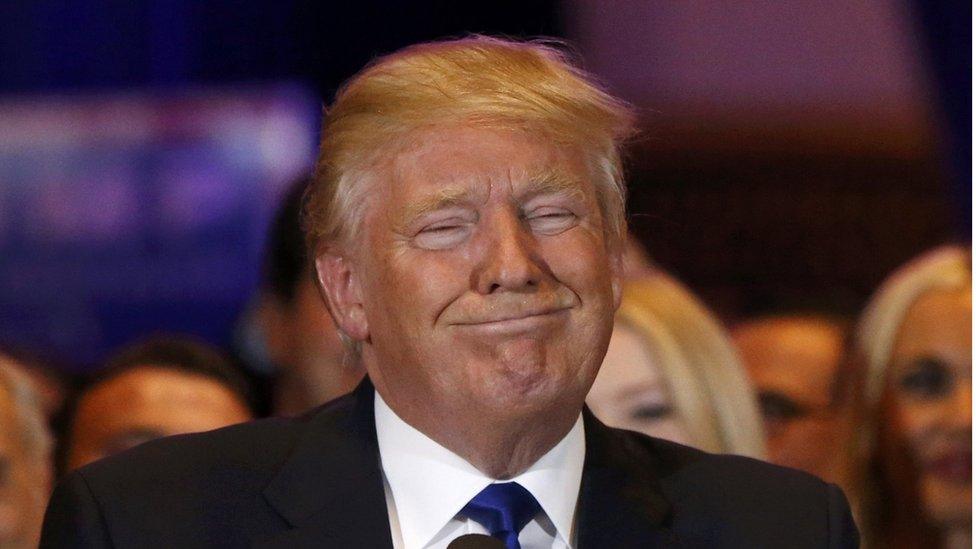
Donald Trump needed a commanding victory, and he got it. Although the results in the state's 29 congressional districts - which allocate three convention delegates apiece - have yet to be finalised, it appears likely that Mr Trump will claim the lion's share of the 95 delegates at play.
He will win an outright majority of a state's vote for the first time this year and approached 80% of the vote in some parts of the state, such as the New York City working-class borough of Staten Island. He'll be able to turn to the next wave of primary contests next week, also in seemingly friendly North East and mid-Atlantic states, with the negative press surrounding his Wisconsin loss two weeks ago a distant memory.
Perhaps even more importantly, however, is the new, restrained Donald Trump on the campaign trail in the past few days. Gone are the incendiary tweets bashing his opponents (and their spouses). Instead on Tuesday night the candidate gave a short speech hammering home his economic message, emphasising his delegate and vote lead, and laying the groundwork to argue that he should be the party's nominee even if he doesn't win the 1,237 delegates necessary to claim the nomination outright.
Mr Trump recently brought in several experienced political hands to manage his campaign after a turbulent few weeks. If this new demeanour is part of the change they have inspired, Mr Trump could prove to be a more formidable opponent not just at the ballot box in upcoming primaries but in the contest to win over those in the party still deeply suspicious of his candidacy.
"Tomorrow, we go back to work," Mr Trump said during his victory speech. It was a very un-Trump-like line - and something that should have his opponents very concerned.

Hillary Clinton is in the driver's seat
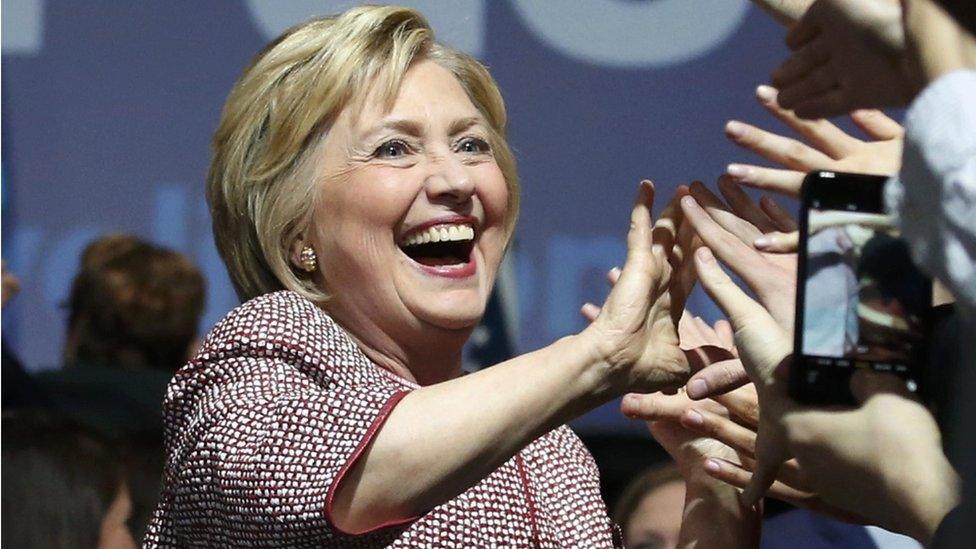
Bernie Sanders fought a pitched battle in New York - a reflection of the make-or-break nature of this primary. He outspent Mrs Clinton $7m to $3m on television advertising in the state and held massive rallies for supporters, drawing more than 20,000 last week in Manhattan.
It wasn't enough.
Although the Vermont senator entered the contest riding a five-state winning streak, New York presented serious obstacles. It was a closed primary with cumbersome party registration requirements, which likely kept out many independent voters who have favoured Mr Sanders in the past. Mrs Clinton has long ties to the state, having served as one of its two US senators for seven years. And its Democratic electorate has a high proportion of minority voters (40%) - a demographic that has been less supportive of the Brooklyn-born candidate.
Excuses aside, the reality is that Mr Sanders now has a near insurmountable deficit to make up in the 19 contests remaining in the nomination fight. He'll have to post double-digit wins in pretty much every remaining primary, including delegate-rich Pennsylvania next week - where he trails in the polls - and California in June.
"The Democratic nomination," Mrs Clinton said, "is in the home stretch, and victory is in sight".
On Tuesday night Mr Sanders announced he was going home to Vermont for a day of rest. He has the money and the campaign infrastructure to fight to the bitter end, but the delegate count is a cold, hard truth.

Not-so-divided Democrats
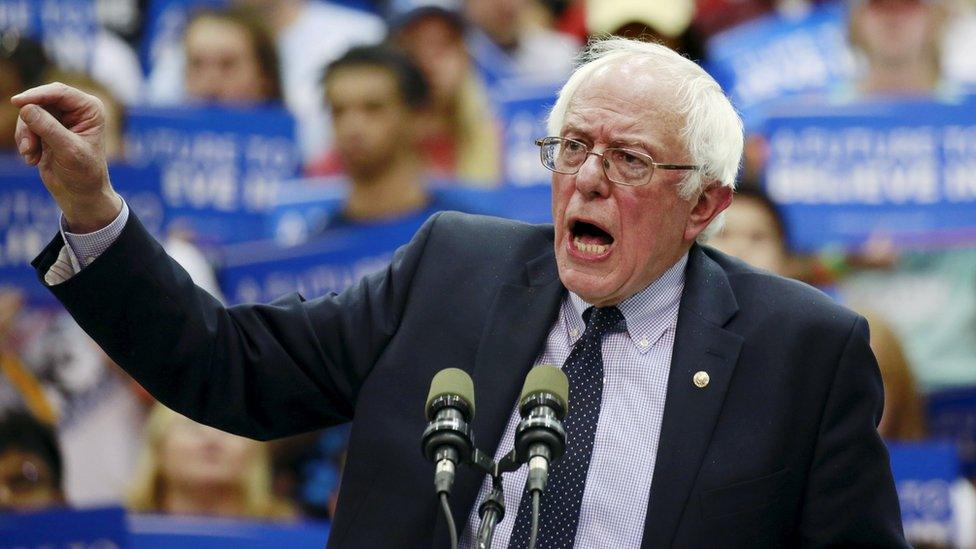
The race between Mrs Clinton and Mr Sanders has taken an acrimonious turn over the past several weeks, with the two candidates exchanging attacks on each other's judgement and vision. Those harsh words may not be poisoning the Democratic Party, however.
According to exit polls of Democratic primary voters in New York, only 13% of voters said they won't vote for Mrs Clinton if she wins the nomination - far fewer than the Clinton voters who said they'd never back Barack Obama in 2008 (and then did).
By contrast, on the Republican side, 26% said they wouldn't support Mr Trump if he were to win the nomination.
There is still a clear schism within the Democratic electorate, of course. According to exit polls Mr Sanders carried 69% of voters ages 18 to 29, while Mrs Clinton won an eye-popping 72% of voters over 65. Mr Sanders narrowly won white voters, while Mrs Clinton carried 63% of Hispanics and 75% of blacks.
As a whole the hotly contested primary appears to be a net positive for the Democrats, with 68% of primary participants saying the race had "energised their party".
It originally looked like Mrs Clinton would have an easy path to the nomination, but perhaps the harder road will end up a beneficial one.

Cruz crushed
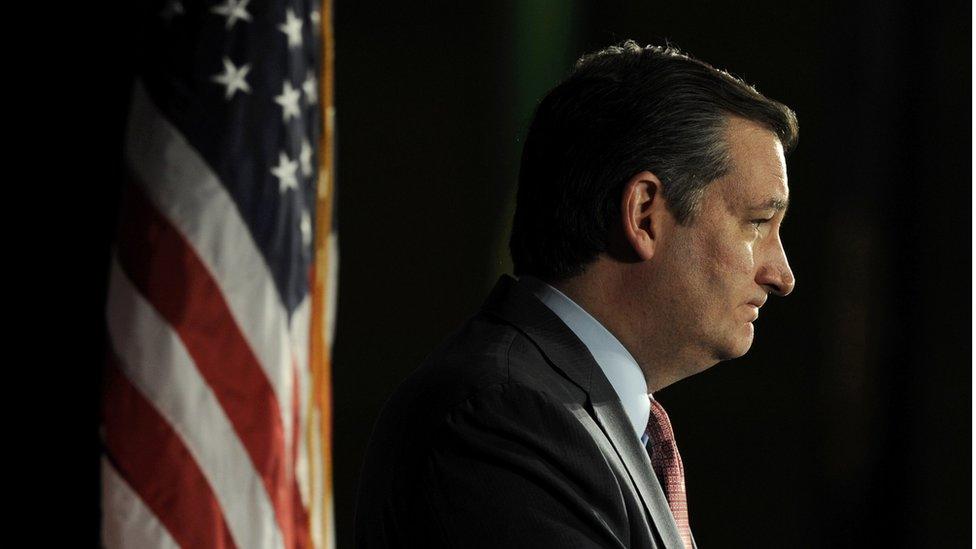
There was a reason Ted Cruz took a break from campaigning in New York last week to hold rallies in California. While there's opportunity for the Texas senator in the Golden State's primary more than a month from now, the road ahead for the man positioning himself as the only alternative to Trump is about to get rocky.
He was soundly beaten in New York, finishing a distant third behind Mr Trump and Ohio Governor John Kasich. While some of this performance can be attributed to his use of the term "New York values" as a demeaning epithet to hammer Mr Trump earlier in the campaign, it also could indicate that Republican voters in North East states just don't care for the evangelical, hard-core conservative orthodoxy the Texas Senator is pitching.
That should set off warning bells in the Cruz camp, as the slate of states set to vote next week - Pennsylvania, Maryland, Delaware, Connecticut and Rhode Island - all have similar electorates.
Mr Cruz could get back on the winning track when the campaign trail turns west in the following weeks, but by then he will almost certainly have been mathematically eliminated from the race and left hoping for behind-the-scenes manoeuvring to deliver the nomination to him on the Republican convention floor in July.
If Mr Trump can stick to his new campaign script and avoid distracting personal insults - while still relentlessly bashing as "crooked" a process that doesn't award him the nomination despite a commanding lead in delegates and votes - Mr Cruz will be hard-pressed to wrest the nomination from his grasp no matter how well prepared he is for a floor fight.